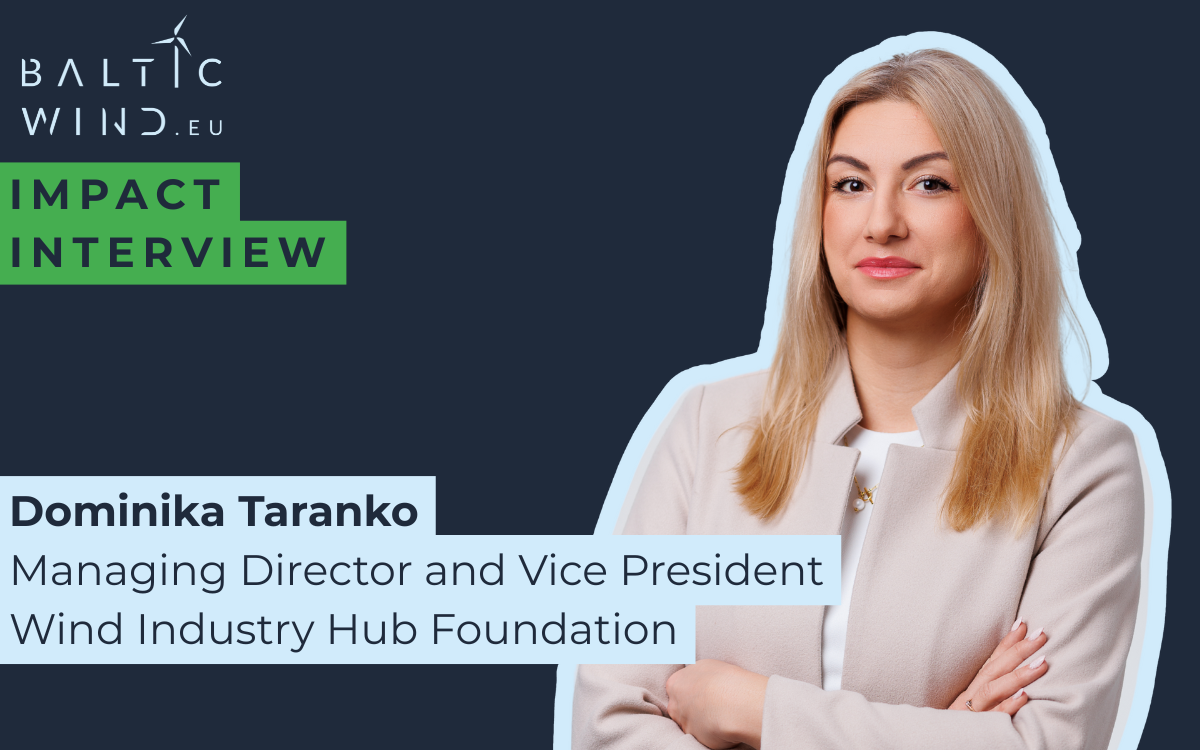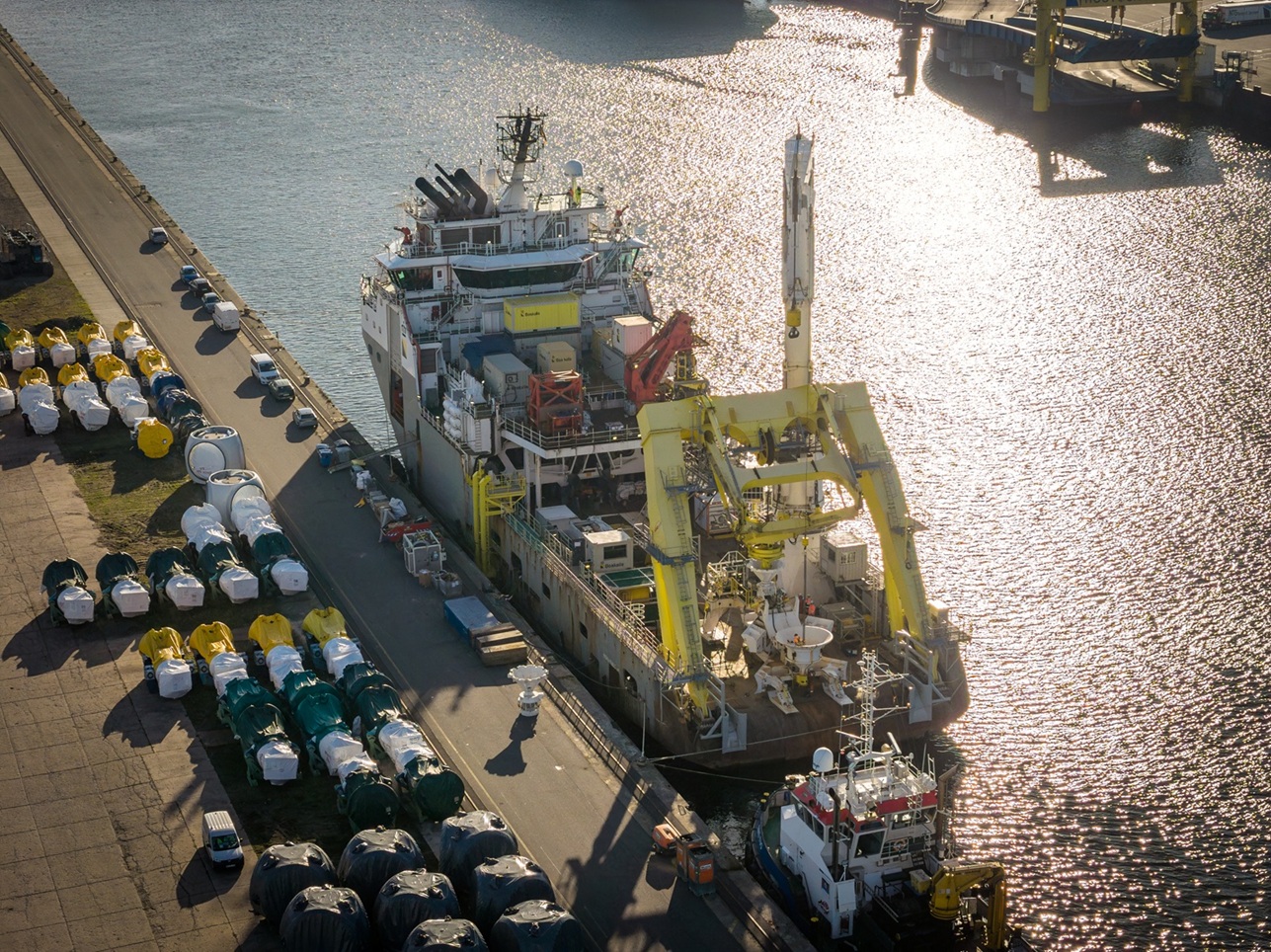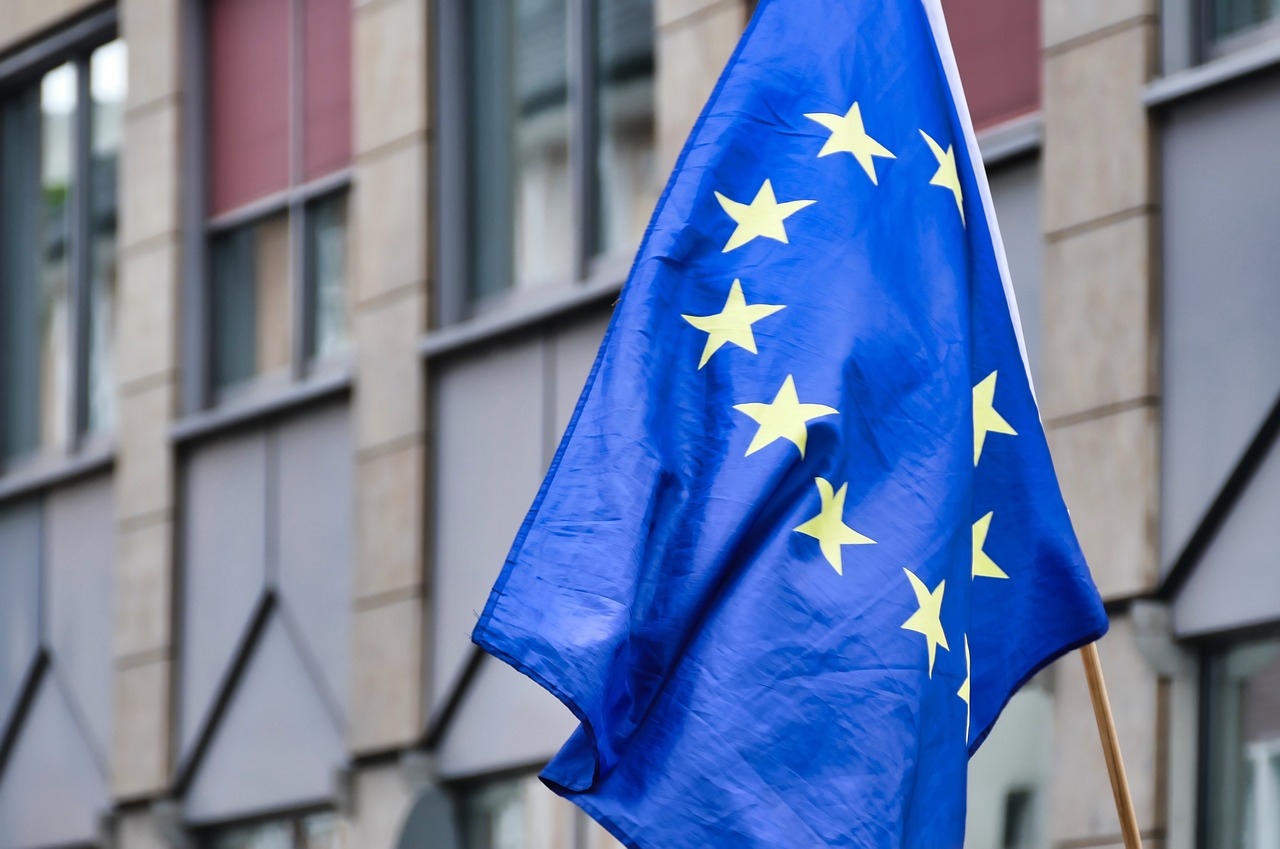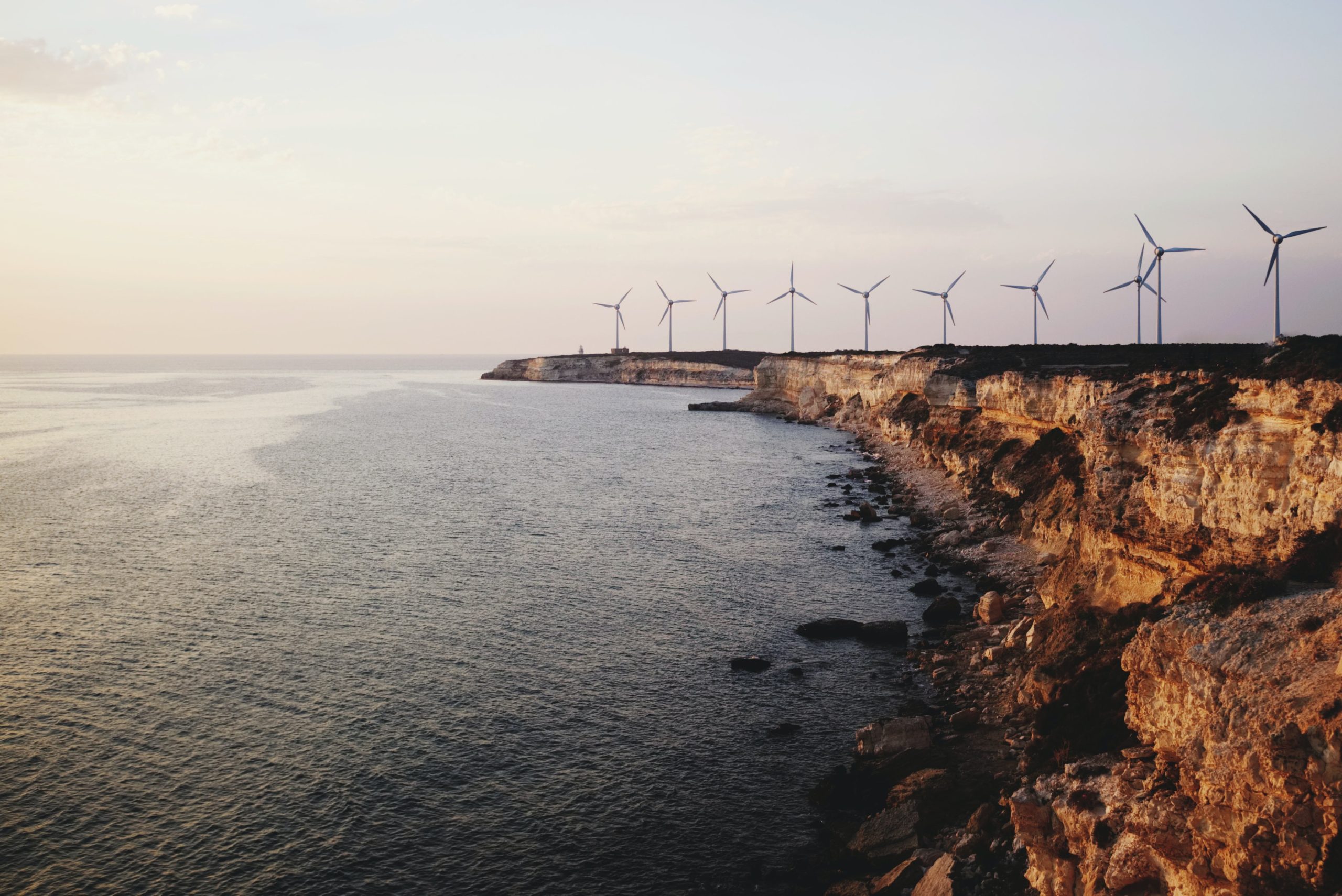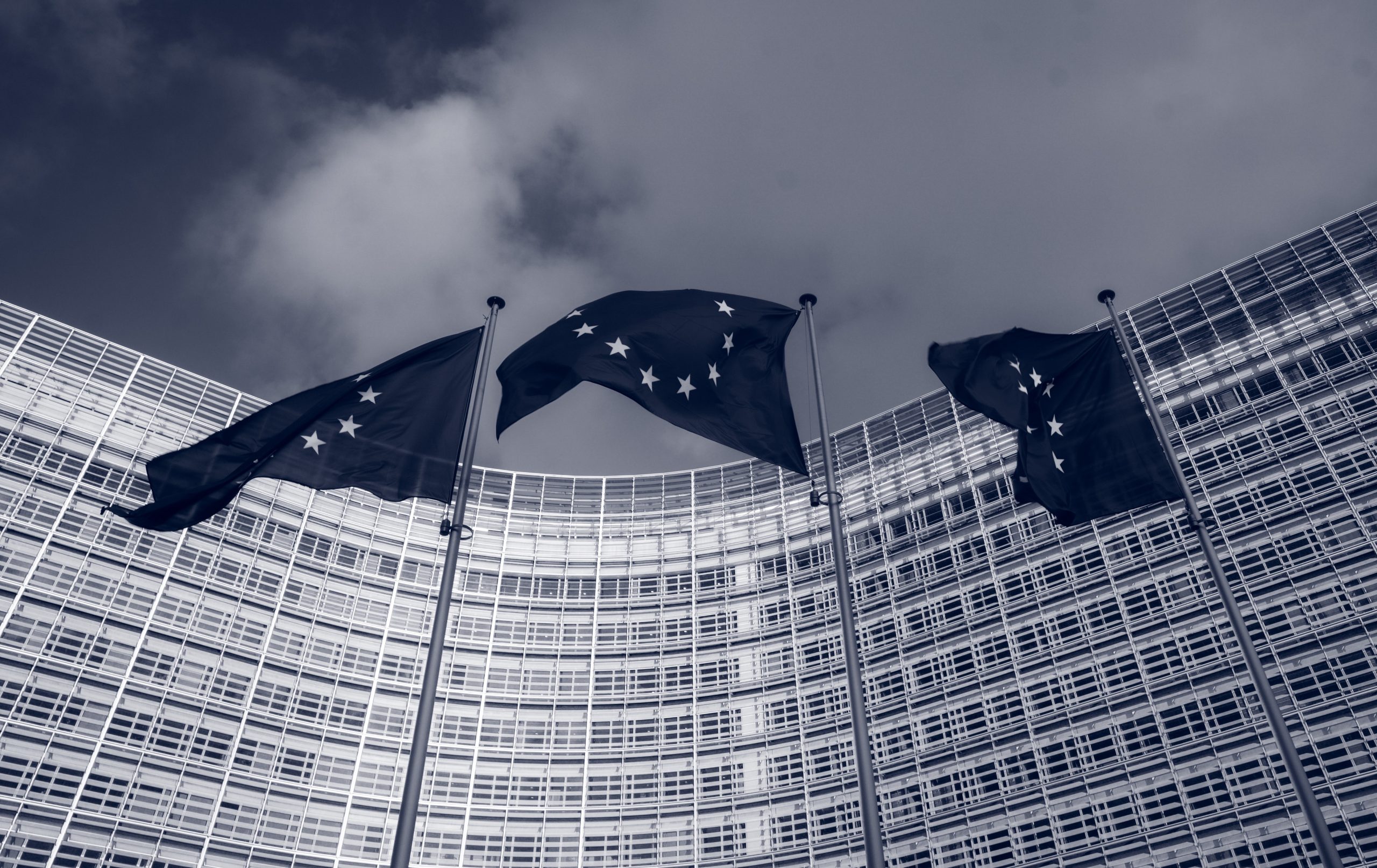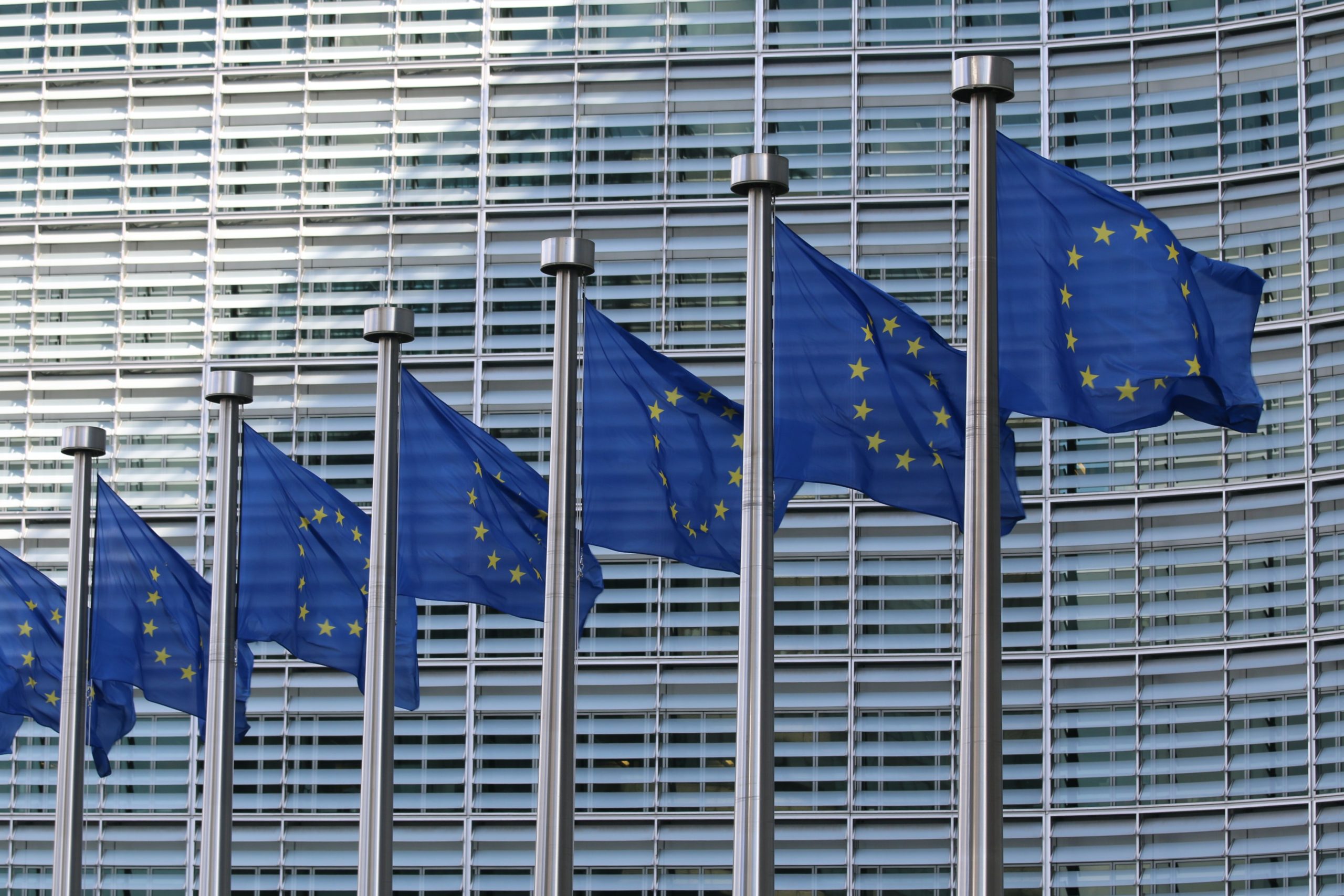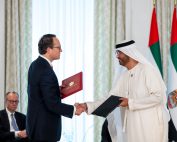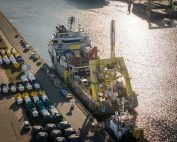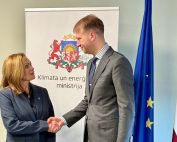Poland’s offshore wind industry is gaining momentum, and with it the discussion about the role of Polish industry in this strategic sector. The Wind Industry Hub Foundation, working to support a strong industrial base in Poland, has prepared a strategy that has the potential to become a signpost for government and business action. Dominika Taranko, Managing Director and Vice President, Wind Industry Hub Foundation, talks about the background to its creation, key demands and reception.
Krzysztof Bulski: The Wind Industry Hub has prepared the “Polish Offshore Wind Industry Development Strategy”. What was the genesis of this document and what exactly does the industry expect from the state in order to effectively implement the assumptions it contains?
Dominika Taranko: We started work on the strategy in the autumn of 2023. At that time, awareness of the scale of the offshore wind farm investment project existed mainly on the part of industry participants. It was not a topic present in the public or political discussion, it did not appear in the coalition agreement. We have seen that Poland often implements EU directives late, reacting to ready-made regulations instead of actively participating in shaping them. At the same time, looking at the growth of wind ambitions in Poland and Europe, and the changing geopolitical situation, where the industry started to be seen as a guarantor for the security and resilience of the economy, we felt that this awareness and discussion was missing in Poland.
Our aim was to prepare a well-considered analysis showing what Poland can offer and where there are synergies with other sectors of the economy. We prepared a 400-page analytical material, which we originally wanted to pass on to ministries to be used to create a government strategy. We started with the Ministry of Development and Technology, and also met with representatives from the Ministry of Climate, Infrastructure, Funds and Regional Policy, as well as government agencies like PFR and PAIiH. We finalised the document in January 2025 and decided to have a market launch on 17 April.
In terms of the industry’s expectations, which we have included in the ten implementation packages, it is crucial that the government firstly recognises the offshore wind energy sector as strategic for the Polish economy. This would open the door to creating a dedicated industrial policy for wind or integrating it into the country’s broader industrial strategy. Without this, the tools available from government agencies or European funds cannot be effectively directed to support the supply chain.
The second important point is long-term and clear planning. We need a national energy policy until at least 2050 and a predictable auction calendar. Ragged actions and investment gaps can result in projects being carried out by contractors from outside Europe and Poland.
We also call for the establishment of coordination at governmental level, e.g. in the form of a Coordinating Council headed by a Plenipotentiary, bringing together representatives of key ministries. It is also important to establish a central research centre for offshore, supporting R&D and business-science cooperation, as well as a systemic approach to human resources training.
Among the recommendations are also the issues of financing and state guarantees, necessary for Polish companies to climb the supply chain and compete with international players. We recognise the openness of the Export Credit Insurance Corporation and BGK in this area.
Krzysztof Bulski: What is the current perception of this strategy by decision-makers and the industry following its publication? Has it met with a positive reception?
Dominika Taranko: The reception has been very positive, and this is actually from all sides – from developers to industry players to decision-makers. Developers see it as a material that facilitates their operations and builds a favourable investment environment. Polish companies see it as ‘oxygen to action’, responding to visible challenges.
We are most pleased with the response from the government. We can say that we are getting closer to realising our original ambition, which was to convince government representatives that such a strategy should become a government document. Minister Miłosz Motyka in recent days, during a meeting of a parliamentary committee dedicated to the issues of OWE and local content, thanked us for our material and confirmed that work on the preparation of such a government document would be accelerated, in cooperation with the Ministry of Development and Technology. This shows that our efforts have been recognised and appreciated.
Krzysztof Bulski: The strategy appears in the context of discussions on the repolonisation of the economy. What specific recommendations does the document contain to strengthen the position of Polish companies in this sector?
Dominika Taranko (Wind Industry Hub): There are two aspects to our strategy. Firstly, we wanted to disenchant a bit the understanding of ‘local content’ and ‘repolonisation’. Our message is to think about ‘European content’. Of course, we want to offer products and services as much as possible from Poland – whether through Polish companies or foreign companies that decide to invest here, seeing the favourable climate. The idea is that wherever a Polish entity meets the criteria and has competence, it should be involved. But the industry is European, or even global – so our domestic companies should be a link in the European supply chain – hence the narrative of European content.
Secondly, supporting Polish companies to reach Tier 1 or Tier 2 levels in the supply chain is key. So far, of the 40 or so key contracts in the first phase, only a few have gone to entities registered in Poland – and they have not always been Polish companies. The lack of adequate financial standing or the ability to obtain state guarantees limits our companies. This is why we are calling for the creation of tools (financial, innovative, supporting the development of competencies) that will enable Polish companies to form strong partnerships, including international ones, and to lead consortia. The idea is to keep orders in Poland. We have identified eight Priority Implementation Programmes – areas where it is worth fighting for this higher level in the value chain.
Krzysztof Bulski: Which elements of the strategy have the greatest potential to have a positive impact on the wider Polish economy beyond the RES sector alone?
Dominika Taranko: The scale of investment in offshore wind farms, infrastructure or the sector in general – estimated at PLN 300-500 billion by 2040 – makes it the biggest ‘investment cake’ in this time horizon, bigger even than CPK or nuclear projects. This means that a huge number of service providers – legal, consulting, recruitment, tax, transport – will have the opportunity to get involved in this sector .
We also see great synergies between offshore and onshore, which is expecting a new investment boom in our country after the liberalisation of the 10H Act. The development of offshore wind energy is also an opportunity for new life for the shipbuilding and port industry, which has had difficult years. Offshore competence is strategic, also from the point of view of safety and dual-use applications .
Polish traditional industries, such as metallurgy, steel production, casting, forgings, have the potential to adapt to the needs of the wind sector. The example of Huta Częstochowa, which produced towers for the onshore for years, shows that this can be revisited. We are able to produce around 65% of the components for turbines in the country if we make strategic decisions and configure the plants accordingly .
Many of the priority programmes we have identified are based on competences and services, such as planning, design, service or maintenance. These are areas that, from a pragmatic point of view, should be implemented in Poland. There is also a growing role for cyber security and dual-use applications such as drones and unmanned vehicles, in which Poland has experience. We genuinely believe that offshore has the potential to be an engine of growth for many sectors .
Krzysztof Bulski: Looking more broadly, we see growing potential for regional cooperation in the Baltic Sea area. How does this strategy relate to the regional perspective and opportunities for Polish companies abroad?
Dominika Taranko: Definitely yes, the regional potential is huge. Polish supply chain companies have a chance to make their presence felt with investments in other Baltic countries. However, we still lack a conscious, systemic Polish representation at key industry events abroad. We lack the national stands at trade fairs that even smaller countries have.
We have many companies that offer great products and services, but often lack resources for promotional activities or strategic thinking in the context of foreign expansion. I believe that the Polish Investment and Trade Agency, with the support of the Ministry of Development and Technology, KUKE, BGK, should animate these activities, providing resources for exposure standard and economic diplomacy, for expansion into foreign markets. We often hear that individual institutions need a segmented base of Polish contractors to promote them abroad. As the Wind Industry Hub, we started to build such a supplier directory to make it easier for foreign entities to find partners in Poland. Today there are about 140 companies in it, but we are also covenanting on a reliable, market-based segmentation. This systematic approach is key to stepping out into a regional role.
Krzysztof Bulski: The Polish presidency of the Council of the EU is coming to an end and Denmark, a country with strong ties to wind energy, is taking over the role. What is the message of the Polish industry to the Danish presidency?
Dominika Taranko: The fact that the Danes are taking over the role is very positive, because wind and sustainability are close to them. We do not expect a turnaround in policy under the pressure of geopolitics.
The message from the Polish industry to the Danish Presidency could be that the European Union should recognise the enormous progress of the countries that joined later. We should not be seen as a “two-speed Europe”. Increasingly, experienced companies from Denmark, Norway or other countries are finding that Polish contractors can be precise, accurate, efficient and often cheaper. However, we still often encounter ‘glass walls’ and a lack of complete trust at the start .
Poland’s role in the EU has increased, we know how to do business and we learn quickly, we have excellent engineers. We would like the Danish presidency to help promote the idea that we are ready to be an equal partner. Cooperation with Denmark is already going well in West Pomerania, for example. The time has come for us to enter a higher business league, because we are simply ready for it.
What, in turn, should be the aim of the Polish administration still in the coming weeks is to shape the new EU financial perspective appropriately, including in such a way that adequate funds are provided for industry, to support the development of supply chains.
